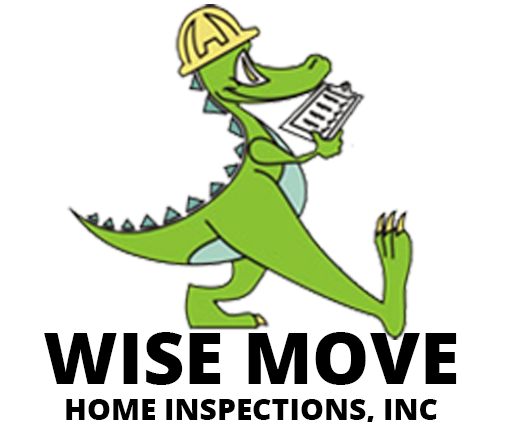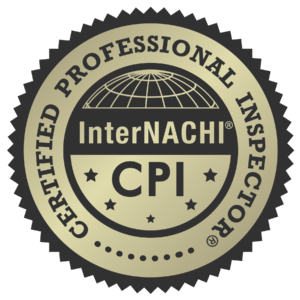Pre-listing Inspection
Eventually your buyers are going to conduct a home inspection. You may as well know what they are going to find by getting there first. Having an inspection performed ahead of time helps in many other ways:
- It allows you to see your home through the eyes of a critical third-party.
- It helps you to price your home realistically.
- It permits you to make repairs ahead of time so that…
- Defects won’t become negotiating stumbling blocks later.
- You have the time to get reasonably priced contractors or make the repairs yourself, if you are qualified.
- It may encourage the buyer to waive the inspection contingency.
- It may alert you of items of immediate personal concern, such as radon gas or active termite infestation.
- It may relieve buying prospect’s concerns and suspicions.
- It reduces your liability by adding professional supporting documentation to your disclosure statement.
- Alerting you to immediate safety issues before agents and visitors tour your home.
Copies of the inspection report along with receipts for any repairs should be made available to potential buyers.
Be sure the inspector you use is insured certified and belong to a professional organization such as NACHI,
Clean up the outside
- Curb appeal is the first impression of your house. Keeping the grass cut and the area tidy will help make a great first impression.
- Paint or wash the exterior of the house (including window casings, shutters, and doors).
- Wash the windows inside and out.
- Check the gutters and chimney.
- Trim trees and shrubs which touch or overhang the house.
- Apply new caulking and weather stripping as needed around windows and doors
Clean the drive and remove any weeds.
Check the Major Systems
After size, style, and location, a home buyer’s primary concern is the condition of the home’s basic structure and major mechanical systems. Most buyers do not want to invest a great deal of money correcting problems in such critical areas.
A pre-listing home inspection of the visible and accessible home components can reveal most of these problems, and include recommended repairs, if needed, on the following major items:
- Roof structure and covering
- Foundation, basement, and/or crawl space
- Central heating and air conditioning systems
- Electrical system
- Plumbing system
Touch Up the Interior
- Put a fresh coat of paint in the most used areas of the home. This will clean as well as brighten up the rooms.
- Wash the walls where paint is not appropriate (i.e. wall paper, paneling).
- Wash all floors and bathroom tiles.
- Shampoo dirty carpets.
- Get rid of clutter. Clean out your closets, garage, basement and attic. Use self storage if necessary.
- Replacing air filters will help keep the dust down.
- Tighten loose doorknobs.
- Replace damaged screens.
- Replace broken panes of glass.
- Replace burned-out light bulbs.
- Patch holes or cracks in walls and ceilings, then repaint.
- Repair peeling wallpaper.
Replace bathroom and kitchen fixtures that are worn or leaking
- People will notice a leaking or worn-out faucet. By replacing these items, you will give a new look to the room.
- Clean under the sinks. If there is any leaks fix them. Then clean up the damage using contact paper or paint.
Saftey Items
Home inspectors also pay attention to items relating to protecting the home and its occupants from danger. They can alert you to important safety precautions which home buyers will appreciate, such as:
- Installing smoke detectors on each level.
- Installing Ground Fault Circuit Interrupters (GFCI’s) in “wet” areas, such as kitchen counters tops, bathrooms, and exterior outlets.
Get rid of any bad smells in your home
- Pay attention to pet or cigarette odors.
- Place scented potpourri around the house.
- On the day you’re expecting a potential buyer, pop a batch of frozen cinnamon rolls or home-made bread into the oven for a great aroma.
- Do everything you can to get the house in good condition before you attempt to sell it, but don’t be discouraged if the inspection report contains a few negative statements.
- Home inspectors make note of everything they see.
Make sure that all attic hatches, electrical distribution panels, water heaters, air handlers are all accessible for the home inspector as these will need to be inspected. Your home buyer may be slightly put off if any of these important items could not be inspected.
Remember that the home inspection report is not a wish-list for buyers. Read your contract carefully–it dictates which systems should be in good working order at closing. If the roof is older, but doesn’t leak, it’s in good working condition. The same is true for older appliances.
Your contract may also state that you are under no obligation to make any repairs at all–although the buyers can then likely withdraw from the contract. Don’t feel you must comply with unreasonable demands for repairs.







